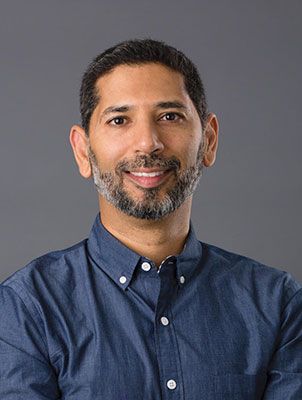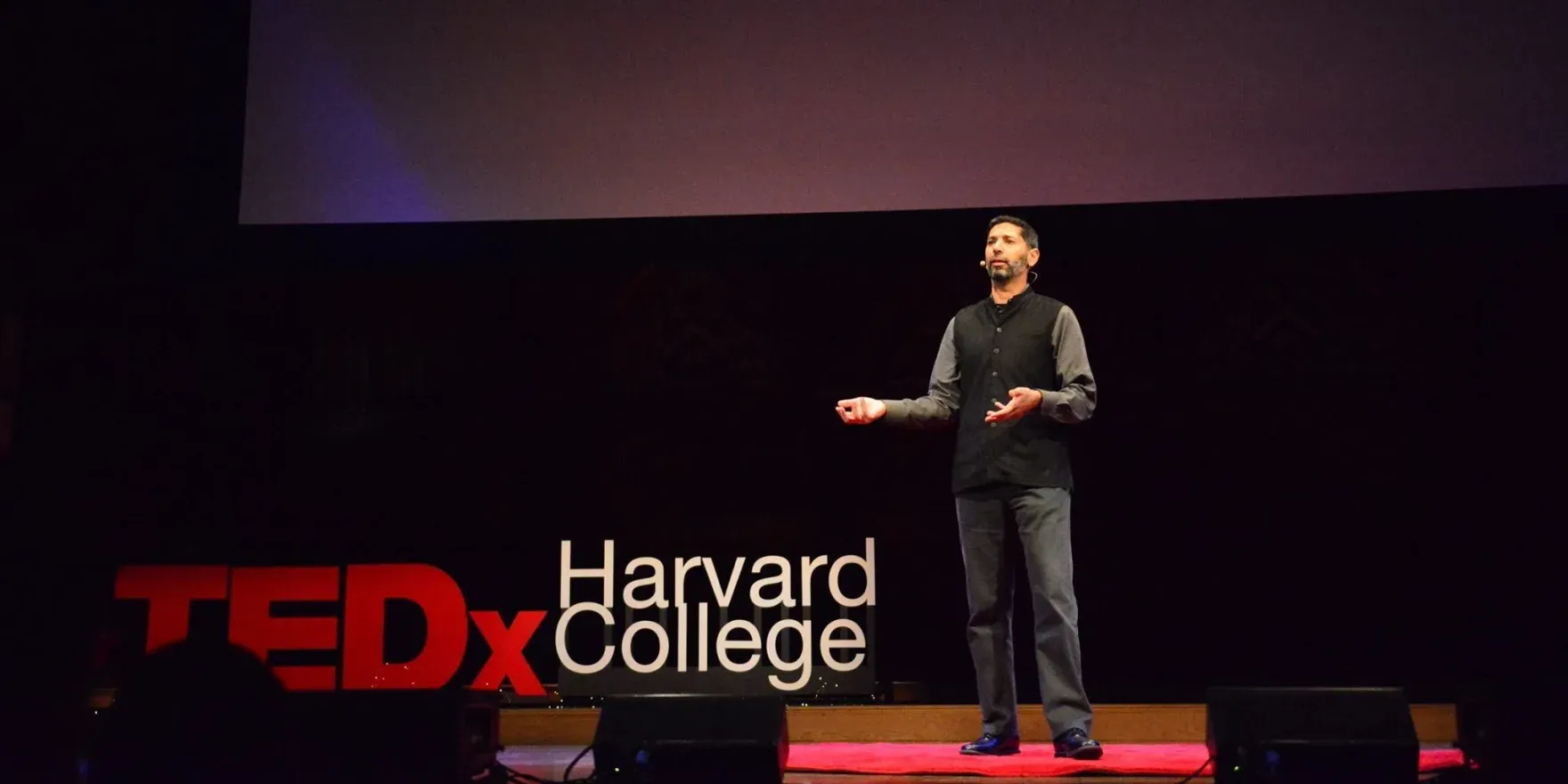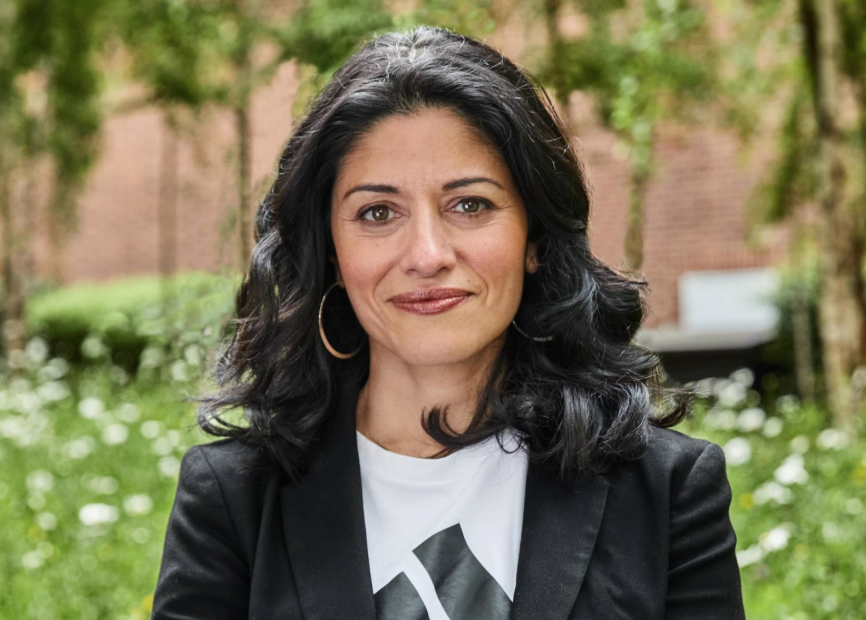Pawan Dhingra On Stepping In As Interim CEIO
Professor Pawan Dhingra has taken on the role of Interim Chief Equity and Inclusion Officer for the Office of Diversity. Staff Writer Anna Wang ’28 talks with him about his background in Asian American studies, tensions on campus, and his vision moving forward.

Coming into the Office of Diversity, Equity, and Inclusion (ODEI) with a rich background in Asian American studies, faculty development, and interdepartmental relations, interim Chief Equity and Inclusion Officer (CEIO) Pawan Dhingra is determined to “keep the momentum going” for the ODEI.
Sheree Ohen, who joined Amherst as CEIO in June 2023, has taken a temporary leave due to a family emergency, necessitating Dhingra’s Sept. 16 appointment. Since then, Dhingra has frequently met with ODEI staff to address the potential impacts of the changes in leadership, as well as student demographics, while continuing to support diversity among students and faculty.
“I am mindful of what it means for the staff and the division — it can be very unsettling to have someone who joins a year ago and also is out for a while,” Dhingra said. “But I’ve told them that we’re here to maintain much momentum and my job is to support them … The work is too important.”
As Associate Provost and Associate Dean of the Faculty, Dhingra said he has developed a good understanding of the institution and formed meaningful relationships with faculty. His new role in ODEI has opened up more opportunities for him to reach out to students.
“It’s much more connected with students in a very good way,” Dhingra said. “You hear about their concerns, you will be in front of students more. Technically, it’s been a week in the office, but I’ve already had meetings to have this happen.”
Dhingra plans to continue Ohen’s re-envisioning of ODEI, which focuses on collaboration between departments of the office and with the Center for Restorative Practices. Rocky Wood, associate director of DEI education and engagement, hopes that Dhingra’s experience will help the team accomplish these long-term goals.
“Pawan is committed to keeping that vision to progress forward,” Wood said. “He has so much knowledge about campus culture. He also has a critical sociological lens that he brings to the work, which is great.”

Despite the change in leadership, the ODEI has continued to sponsor a series of events supporting student diversity, including a guest speaker session on Sept. 26 in collaboration with the Center for Restorative Practices that discussed Israeli-Palestinian families coming together amid political conflicts. Dhingra sees such events as important for creating bridges across racial and cultural groups on campus, especially in response to recent global situations.
“There’s a lot about antisemitism and how it’s impacted campus with events happening these weeks,” Dhingra said. “There are various things that are in the works … around these major issues on campus and internationally.”
According to Wood, the ODEI is aware that upcoming elections may continue to heighten tensions and has already planned events related to these issues.
Dhingra sees the nearly three-quarters drop in Black students from the class of 2027 to class of 2028 as a direct result of the Supreme Court ruling against affirmative action and hopes that ODEI’s efforts can make students feel they fully belong on campus.
“The major change has been this loss of race-conscious admissions, which is really unfortunate that there’s so many students who we were not able to admit.” Dhingra said. “For the college students we do have here, we welcome them with open arms.”
As chair of the Asian American and Pacific Islander Studies program, Dhingra has noticed that some Asian American students, although their numbers have remained largely the same, have also been impacted by the change in campus demographics.
“I was at a meeting with a centered inquiry on this topic, and an Asian American student said ‘I feel guilty or awkward or very mindful about being here, that I take the place of some African American or Latinx student or Native American student,’” Dhingra said. “And no student should feel that way.”
According to Wood, the drop in Black enrollment is unprecedented and larger than ODEI’s estimates of what this year’s numbers would look like. In coming years, the office will look to work more closely with Admissions.
“Our concern at this moment is to help admissions think through some of their race-conscious approaches that will work specifically in recruiting, but also to focus on the students that are here now,” Wood said.
Although the ODEI does not currently plan to address the change in diversity of class of 2028 through any specific programming, both Dhingra and Wood advise students to voice their concerns to the office or provide feedback on speaker events.
“I want to learn more from students about what they’re experiencing, and then find ways to support them and avoid this notion of us versus them on campus,” Dhingra said.
Dhingra will remain the interim CEIO until the end of this semester.
Correction, Oct. 2, 2024: This article has been updated to reflect information shared by a spokesperson for the college. A previous version reported that there would be cross-departmental ODEI and Admissions positions in the future. In fact, the position is only in the Admissions office and now filled by a former member of ODEI.





Comments ()